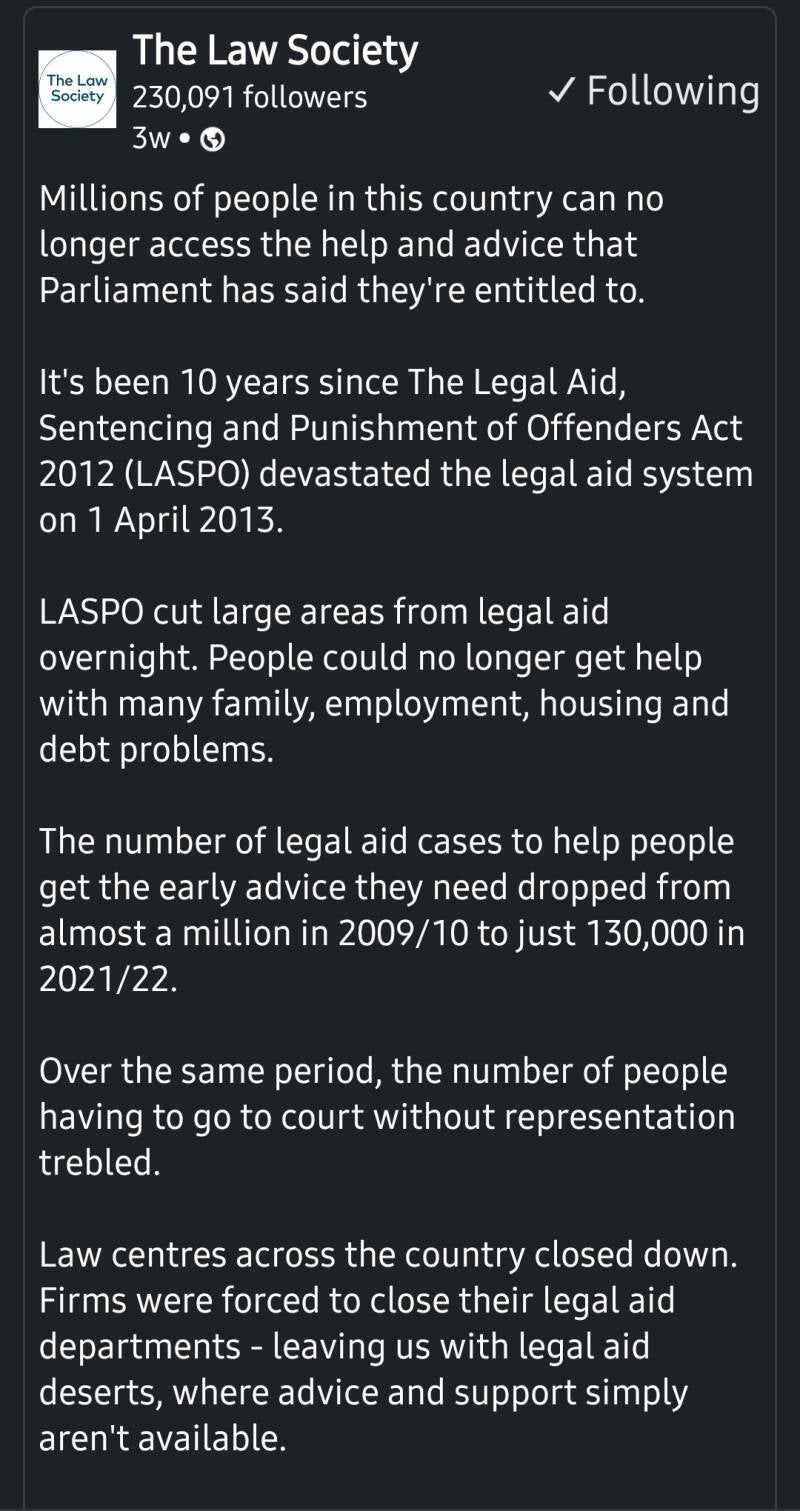Court Support
Each year, numerous individuals in the UK are left to confront court proceedings unaided. In the absence of assistance, they must advocate for themselves during divorce proceedings, custody battles, personal injury lawsuits, eviction cases and lots more. They are compelled to navigate an intricate legal system alone, frequently opposing the professional legal counsel of the opposing party and more often than not causing themselves alot more problems than they had in the first place.
The court system we have in England & Wales is like none other in the world. It has taken over a 1000 years to evolve into what it is now. It can be a very daunting experience for people who are not familiar with it or never even experienced being in a courtroom before.
Legal Aid, Sentencing and Punishment of Offenders Act 2012
Before 2013, the term 'legal aid' was a phrase that went hand in hand with going to court. If you had any dispute that needed resolving then 'legal aid' was the answer. Unfortunately in 2013 massive cuts to legal aid were made. After the Legal Aid, Sentencing and Punishment of Offenders Act 2012 (LASPO) the areas of law that are still in the scope of legal aid are set out in Part 1 of Schedule 1 of LASPO.
The effect this has had is a drastic increase in people having to represent themselves in civil and family law cases. If your case falls within those above areas of law then you may be eligible for legal aid and you should contact a solicitor to find out.
If you are ineligible for legal aid and cannot afford a solicitor, you will have to act as your own representative, also known as a litigant in person (LIP). However, you can use the less expensive services that Harm Prevention offers. We can provide a McKenzie friend who can assist you in court by providing prompts, taking notes, and discreetly offering advice.
What is a McKenzie friend?
To understand what one is, let's see where it originated first of all...
McKenzie v McKenzie: CA 10 Jul 1970
Mr McKenzie was a LIP who wished to be assisted by a young Australian barrister, gratuitously, in the conduct of his case by sitting beside the husband in Court and prompting him. The hearing was in open Court. The friend’s conduct attracted the attention of the Judge who intimated that he should desist whereupon the barrister left the Court. The Judge dismissed the husband’s petition but granted the wife a decree nisi.
Held: The appeal succeeded. The Judge had acted in error. Every party had the right to have a friend present in court beside him/her to assist by prompting, taking notes and quietly giving advice. By reason of the Judge’s intervention the husband had been deprived of that right and, therefore, there had been an irregularity in the proceedings. The court approved the use of an unpaid unqualified friend to a litigant to assist him in presenting his case when acting in person in a defended divorce case. Such a friend would not be able address the court except with the express allowance by the court of an ad hoc right of audience.
What can a McKenzie Friend do?
A McKenzie friend fulfills many of the same roles of a solicitor, such as, preparing your court applications, statements, attending court with you, negotiating with the other side outside the court room, and on occasion, and with permission from the Judge, speaking on your behalf. They need not be legally trained or have any professional legal qualifications. Harm Prevention offers a service were you will literally have someone experienced sitting next to you to assist you if you find yourself in a situation where you can not afford representation.
You can find out more about how the courts work on the Judiciary website.

Link to above article... http://ow.ly/c7U650NwXml